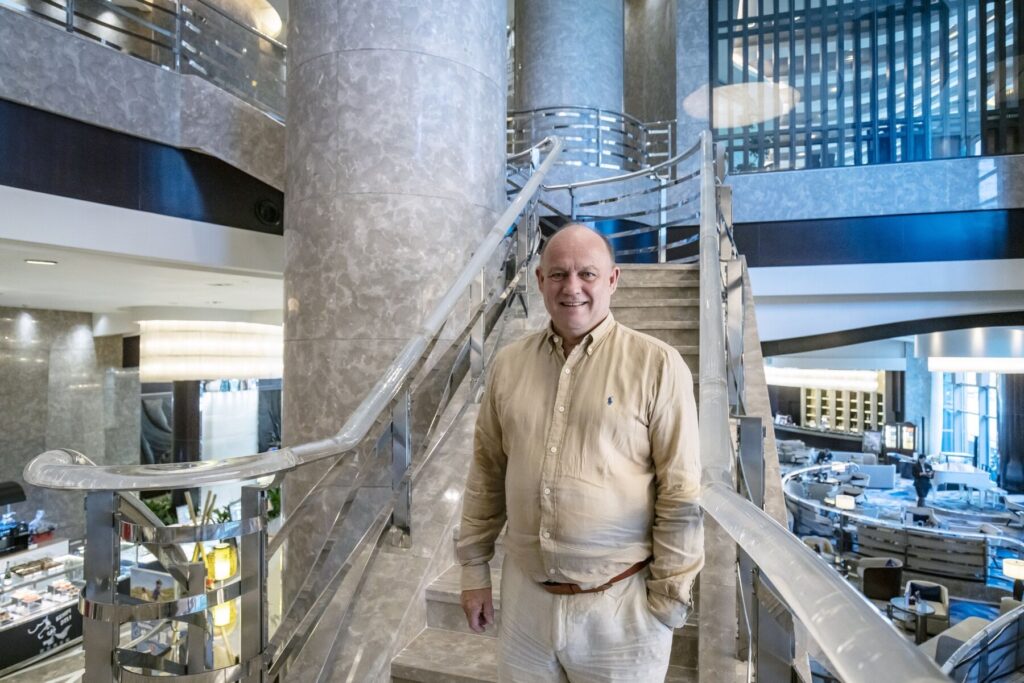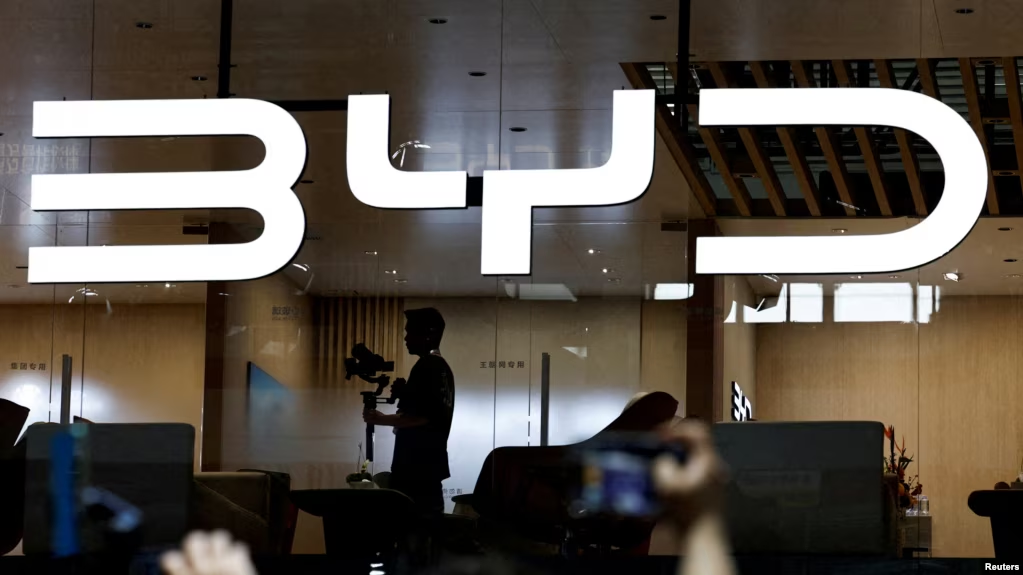
Global charter shipping rates have soared due to a surge in China’s electric vehicle (EV) exports.
Nevertheless, Andreas Enger, CEO of Höegh Autoliners ASA, warns that these high profits may not be sustainable amidst growing geopolitical pressures aimed at curbing the expansion of Chinese automakers.
The car carrier industry has experienced a lucrative period, mainly benefiting from a post-pandemic capacity shortage that drove shipping rates to unprecedented heights.
Companies such as Höegh, known for their specialization in transporting automobiles, mining equipment, and other bulky goods worldwide, have found the situation to be advantageous.
According to Clarksons Research Services, a branch of the world’s largest shipbroker, the current rate for a vessel carrying approximately 6,500 cars is around $105,000 daily. This figure is close to the peak rate of $115,000 recorded earlier this year, the highest since at least 2000.
Enger shared thoughts with Bloomberg News in Shanghai: “The Chinese auto export boom helped create the deficit of capacity that has enabled us to choose our customers, which allows us to increase rates.”
Chinese automakers, including BYD Co. and SAIC Motor Corp., have significantly expanded their reach, exporting EVs to Europe and Latin America. However, this expansion has prompted a geopolitical backlash in the form of tariffs.
The European Union has imposed provisional charges, subjecting SAIC to an additional 38% fee and BYD to an extra 17% on top of the existing 10% customs duties.
President Joe Biden has revealed a strategy to hike the tariffs on Chinese electric vehicles to 102.5% this year, an initiative the United States is taking with Canada also mulling over similar measures. These tariffs and added capacity from competitors could drive down shipping rates.
Despite these challenges, Chinese automakers continue to find ways to penetrate international markets.
BYD recently announced a partnership with Uber to introduce 100,000 new EVs to the ride-sharing app globally, starting in Europe and Latin America and expanding to the Middle East, Canada, Australia, and New Zealand. This partnership seeks to offer accessible pricing and financing for BYD’s EVs on Uber’s platform, as per VOA News.
Analysts suggest that nearshoring, transferring factories and manufacturing operations to neighbouring countries, and manufacturing abroad are strategies for Chinese companies to continue entering global markets.
BYD has announced plans to build factories in Turkey and Hungary, countries with close ties to Beijing and part of the EU. This strategy could extend to North America, with BYD already in talks to establish a factory in Mexico.
According to Tom Moerenhout, professor and critical materials lead at the Columbia University Center on Global Energy, setting up manufacturing facilities in Mexico could allow Chinese EVs to enter the US market through the United States-Mexico-Canada Agreement (USMCA), which allows the relatively free flow of goods between the three countries.
Regardless, Enger anticipates that, eventually, rates will fall to half their current level.
Höegh estimates a backlog of around 50 car-carrying ships on order from China, compared to a total global fleet of approximately 700.
Carmakers are also entering the shipping arena to mitigate logistics challenges experienced during the COVID-19 pandemic.
The BYD Explorer No. 1, a vessel designed to carry 7,000 vehicles, embarked on its voyage to Europe in January. Managed by Zodiac Maritime Ltd. and rented to BYD, this vessel is the first of eight planned additions to BYD’s fleet over the next two years.

“We believe this is more part of building a resilient supply structure,” Enger commented on these moves.
Enger’s recent visit to China, his fourth this year, coincided with the naming ceremony of a new China-built car carrier, one of 12 vessels Höegh has on order. These Aurora Class vessels, described by Höegh as the largest and most environmentally friendly car and truck carriers, can run on zero-carbon ammonia.
Who is Andreas Enger?
Andreas Enger, currently the Chief Financial Officer (CFO), will succeed Thor Jørgen Guttormsen as CEO while maintaining his role as chairman of Posten, Norway’s state-owned postal service.
Andreas has been a key advisor to Höegh Autoliners for over a year and took on the CFO role in September 2019, working closely with the senior management team to revamp the company’s strategy and operations.
With a strong background in management and consulting, Andreas previously led Deloitte’s Nordic strategy practice as a partner and held senior roles at Norske Skog, PGS, and Peterson Packaging after his time at McKinsey & Co. He holds advanced degrees from NTNU and INSEAD.





